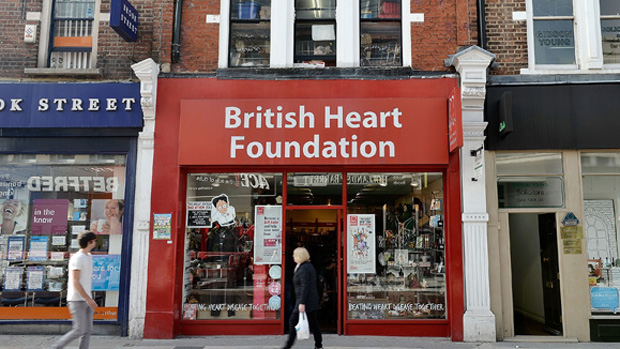Fact Check: Is Easter a Christian or pagan festival?
Cadbury's and the National Trust have been accused of 'airbrushing faith' out of an egg hunt, but is the Church right to be so angry?

A free daily email with the biggest news stories of the day – and the best features from TheWeek.com
You are now subscribed
Your newsletter sign-up was successful
Last year, Cadbury's and the National Trust found themselves in hot water after accusations that they removed the word "Easter" from their annual egg hunt.
Church leaders say the two organisations were "airbrushing faith" out of the festival.
But some argue that Easter is actually a pagan holiday and owes its name to the Anglo-Saxon goddess Eostre.
The Week
Escape your echo chamber. Get the facts behind the news, plus analysis from multiple perspectives.

Sign up for The Week's Free Newsletters
From our morning news briefing to a weekly Good News Newsletter, get the best of The Week delivered directly to your inbox.
From our morning news briefing to a weekly Good News Newsletter, get the best of The Week delivered directly to your inbox.
So what are the origins of Easter?
What is Easter?
Christians celebrate Easter as the resurrection of Jesus Christ after his crucifixion. It is the oldest Christian holiday and the most important day of the church year, with the religion being based on the events of the crucifixion and resurrection.
Celebrations differ around the world. In the US, they give painted eggs and baskets of sweets, while British children go on hunts for chocolate eggs left by the Easter bunny and the Greeks eat a traditional baked bread called tsoureki with red-dyed eggs.
A free daily email with the biggest news stories of the day – and the best features from TheWeek.com
Where did the name "Easter" come from?
No one is quite sure. The Venerable Bede, in the seventh century, claimed it is derived from the name of the pagan goddess Eostre, who is associated with spring and fertility. However, according to Christianity Today, Ronald Hutton, professor of medieval history at Oxford, argues this interpretation is not to be trusted. "It falls into a category of interpretations which Bede admitted to be his own, rather than generally agreed or proven fact," he says.
Other medieval scholars have also thrown doubt on Bede's claims, noting that in most other European languages, the festival has names derived from the Greek word "pascha", from "pesach", the Hebrew word for Passover. Easter is therefore now commonly thought of as the Christian Passover festival.
So does it have any Pagan roots?
Many of the traditions and symbols we now associate with Easter, such as eggs and rabbits, do have their origins in pre-Christian pagan rituals.
The Encyclopedia of Religion says: "The egg symbolizes new life breaking through the apparent death (hardness) of the eggshell."
As for the rabbit, it was "known as an extraordinarily fertile creature, and hence it symbolized the coming of spring".
Philippe Walter, professor of medieval French literature at the University of Grenoble III, says in his book Christian Mythology that "in the process of the Christianization of pagan religions", it was easy to associate the pagan festival that celebrated "the passage from the death of winter to the life of springtime" with Jesus's resurrection.
It was a key step in introducing "Christian commemorations" to the pagan calendar, he says, smoothing the way to mass conversion.
What about egg hunts such as the National Trust's?
According to History.com, German immigrants moving to Pennsylvania in the 1700s had the tradition of an egg-laying hare called "Osterhase" or "Oschter Haws". Their children also made nests in which this creature could lay its coloured eggs.
Eventually, says the website, the custom spread across the US and to the UK, where the fabled rabbit's deliveries expanded to include chocolate, sweets and gifts, while decorated baskets replaced nests.
Easter bunnies are first mentioned in the 1682 book De Ovis Paschalibus (About Easter Eggs), by Georg Franck von Franckenau, which told of the German tradition of a hare bringing Easter eggs for the children.
So who's right?
Most Christians agree that much of today's Easter iconography does not have its roots in the religion.
"Yes, much of the history and symbols of Easter didn't get their roots in the resurrection, which is what we celebrate each Easter," says Christian blog Thought Company, but "that doesn't mean they don't remind us of why we celebrate the holiday".
Easter can mean many things to many people, says Heather McDougall in The Guardian:"Today, we see secular cultures celebrating the spring equinox, whilst religious culture celebrates the resurrection."
-
 How the FCC’s ‘equal time’ rule works
How the FCC’s ‘equal time’ rule worksIn the Spotlight The law is at the heart of the Colbert-CBS conflict
-
 What is the endgame in the DHS shutdown?
What is the endgame in the DHS shutdown?Today’s Big Question Democrats want to rein in ICE’s immigration crackdown
-
 ‘Poor time management isn’t just an inconvenience’
‘Poor time management isn’t just an inconvenience’Instant Opinion Opinion, comment and editorials of the day
-
 Fact check: are US migrant detention centres really concentration camps?
Fact check: are US migrant detention centres really concentration camps?In Depth Congresswoman Alexandria Ocasio-Cortez stands by her controversial claim
-
 Fact check: how do charities spend your money?
Fact check: how do charities spend your money?In Depth The Week investigates what percentage of donations goes directly to those in need
-
 Fact Check: Are far-right groups the biggest US terror threat?
Fact Check: Are far-right groups the biggest US terror threat?In Depth In Depth: New Jersey senator claims white nationalists behind majority of attacks since 9/11
-
 Fact Check: Do terrorists exploit the US green card lottery?
Fact Check: Do terrorists exploit the US green card lottery?In Depth The US visa programme that has sparked Donald Trump’s ire
-
 Fact Check: Did UK’s ‘better educated’ vote Remain?
Fact Check: Did UK’s ‘better educated’ vote Remain?In Depth Labour MP’s linking of education levels to pro-EU votes sparks outrage
-
 Fact Check: The truth about NHS staff shortages
Fact Check: The truth about NHS staff shortagesIn Depth Is the health service facing an unprecedented workforce crisis? The Week looks at the figures
-
 Fact Check: The truth about saturated fat
Fact Check: The truth about saturated fatIn Depth The Week checks out a controversial report that claims saturated fats do not increase heart risk
-
 Fact Check: The truth behind Marmite's brain-boosting properties
Fact Check: The truth behind Marmite's brain-boosting propertiesIn Depth Papers say the spread could prevent dementia, but critics accuse the press of laying it on thick